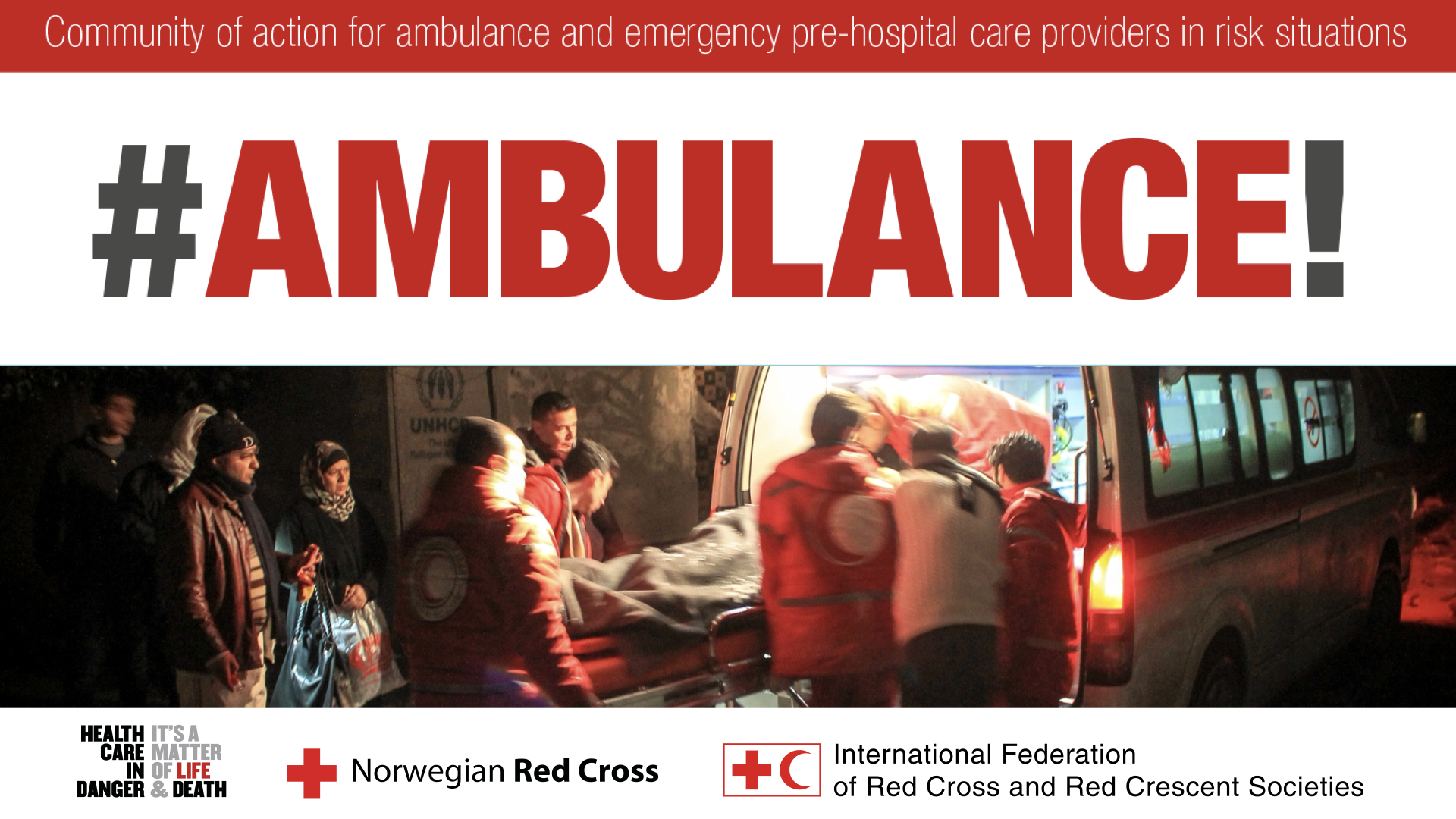IFRC
-
New learning and leadership for front-line community health workers facing danger
This presentation was prepared for the second global meeting of the Health Care in Danger (HCiD) project in Geneva, Switzerland (17–18 May 2017). In October 2016, over 700 pre-hospital emergency workers from 70 countries signed up for the #Ambulance! initiative to “share experience and document situations of violence”. This initiative was led by Norwegian Red…
Written by

-
#Ambulance! Partnering with ICRC’s Health Care in Danger to scale peer learning for frontline pre-hospital emergency care staff and volunteers
On Wednesday, 17 May 2017, the International Committee of the Red Cross (ICRC) convened its Health Care in Danger Annual Meeting at the ICRC Headquarters in Geneva. During the afternoon session regarding training and education initiatives related to the Health Care in Danger (HCiD) project, Reda Sadki presented the outcomes of the #Ambulance! initiative. Sadki…
Written by

-
Webcasts, then and now
(No, this is not a post about the Apple keynote meltdown.) When I started organizing live webcast events for the first time in 2006, they required extensive technical preparation, specialized software and hardware, and – most important – a group of really smart people gifted with more than a little bit of luck to pull off each…
Written by

-
Games for health: 14 trick questions for Ben Sawyer
Ben Sawyer is the co-founder of both the Serious Games Initiative (2002) and the Games for Health Project (2004). He is one of the leading experts on the use of game technologies, talent, and design techniques for purposes beyond entertainment. He answered 14 questions by e-mail ahead of his presentation to the IFRC Global Health Team.…
Written by

-
Community health into the scalable, networked future of learning
Preface to the IFRC Global Health Team’s Training Guidelines (2013) by Reda Sadki “At the heart of a strong National Society” explains Strategy 2020, “is its nationwide network of locally organized branches or units with members and volunteers who have agreed to abide by the Fundamental Principles and the statutes of their National Society.” To achieve…
Written by

-
Thinking about the first Red Cross Red Crescent MOOC
You have no doubt heard about the Red Cross or Red Crescent. Some of you may be first aiders or otherwise already involved as volunteers in your community. My organization, the IFRC, federates the American Red Cross and the 186 other National Societies worldwide. These Societies share the same fundamental principles and work together to…
Written by




